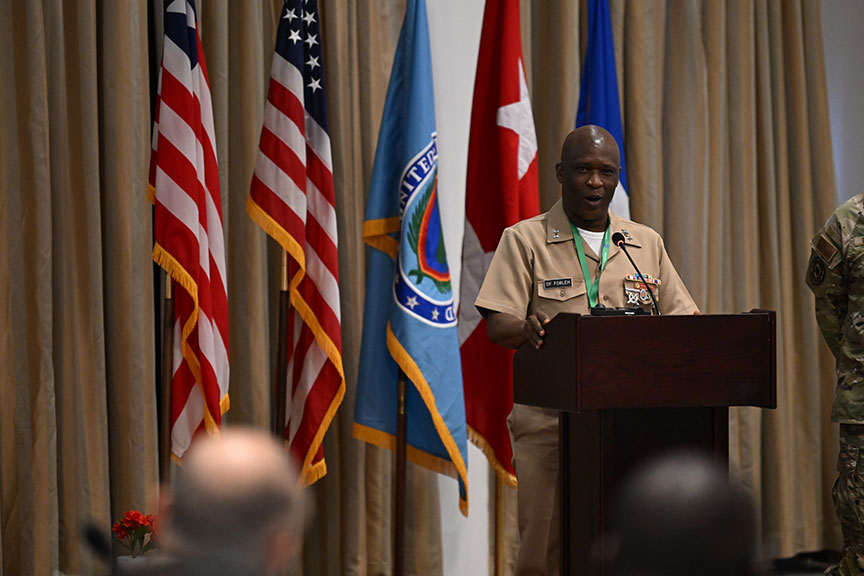As terrorist groups grow in sophistication and continue to expand beyond the Sahel, countries throughout West Africa are finding it is more important than ever to be unified and organized in defending themselves.
The growing threat of al-Qaida and Islamic State group affiliates loomed over the 2025 West Africa Logistics Conference, cohosted by United States Africa Command (AFRICOM) and the Armed Forces of Liberia (AFL) in the capital, Monrovia, from August 5 to 8.
More than 90 participants from 22 nations and organizations attended, including most West African countries and representatives from the Economic Community of West African States (ECOWAS). For the first time, the conference invited partner countries outside the region, including Botswana, Kenya, Morocco and Tunisia.
“This conference could not have come at a better time than today,” AFL Chief of Staff Maj. Gen. Davidson Forleh said during the opening ceremony. “The common enemies that all of us face today in the world is terrorism. No one country can fight terrorism. There has to be togetherness. There must be a synergy of effort.”
Liberian Defense Minister Brig. Gen. Geraldine George called the conference a “critical platform” to strengthen cooperation within ECOWAS.
“This gathering underscores our collective commitment to enhancing regional security, boosting interoperability, and optimizing logistics across our armed forces,” she told Front Page Africa. “In a time of evolving security threats — from transnational terrorism to humanitarian crises — logistics remains the backbone of effective military response.”
The conference featured panel discussions, partner-led forums, and practical exchanges of best practices and lessons learned. Topics included regional logistics planning and coordination, defense transportation systems, interoperability among ECOWAS and partner nations, supply chain resilience and sustainability, crisis response, humanitarian logistics, and public-private partnerships.
The primary concern of military logistics is how to source, stage, move and dispose of materiel throughout the continent. Logistics officials are responsible for a vast array of supplies. They oversee facility construction and upkeep. They feed, outfit, move and arm their Soldiers.
“We are here to ensure that all of us bring to bear our expertise when it comes to logistics,” Forleh said. “Without logistics, you’re not going to win a battle.
“This conference is very important, because it will take us to another level. It’s not about cents’ and dollars’ benefit. It’s about building the capacity, the human resource, because this is where we share experience.”
During the event, AFRICOM expanded the use of its African Mission Partners Environment, a virtual forum for hosting sharable information critical to building out logistics networks.
AFRICOM’s logistics team also led a discussion on the Assess, Advise, Advocate and Integrate Operational Assessment Model, called A3I. The model takes in self-reported logistics data from African partners, such as supply nodes, fuel points and airstrips.
The goal is to build a complete assessment of regional strengths and gaps in capability with specific, measurable and achievable goals, according to AFL Assistant Chief of Staff for Logistics Lt. Col. Saimo Kortu.
“We’re refining the product to fully map out all of our capacities, identify gaps and think about how those gaps can be bridged,” he said of A3I. “It’s a very useful tool that’s going to help enhance our capability.”
After successful iterations of the conference in Côte d’Ivoire in 2023 and in Cameroon in 2024, AFRICOM director of logistics Air Force Brig. Gen. George Dietrich praised this year’s host country and all of the participants for working “to build on a strong foundation of logistics and improve it and increase the security of the region.”
“The last two conferences were fantastic events, each one significantly moving us forward in our endeavors,” he said. “These events help us to understand our shared strengths and our challenges and devise quantifiable, measurable, objective solutions to those challenges.”

